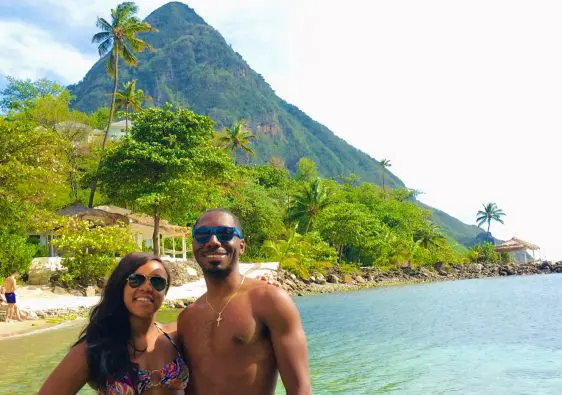Anytime I talk to someone planning a trip to Brazil, their #1 concern is always safety.
And I get it…
You can find enough horror stories online to make even seasoned travelers like myself rethink their trip.
But Brazil is a MASSIVE country, and these crime statistics are often inflated by a handful of dangerous neighborhoods. If you do the research to find a safer neighborhood in one of the safest cities in Brazil, you’re very unlikely to run into any issues!
I’ve personally been to Brazil twice—once as a solo traveler and once with my family (my twins were four years old at the time). The main reason I didn’t feel nervous about it was that I asked a few of my Brazilian friends—I work for my company’s South American headquarters—for advice on where the safest areas were ahead of time.
This inside scoop gave me much more peace and confidence going into my trip.
So, I’d like to pass that information along to you!
These are the safest places to visit in Brazil, along with a few of the safest neighborhoods and tips for keeping yourself and your family safe while traveling through each city.
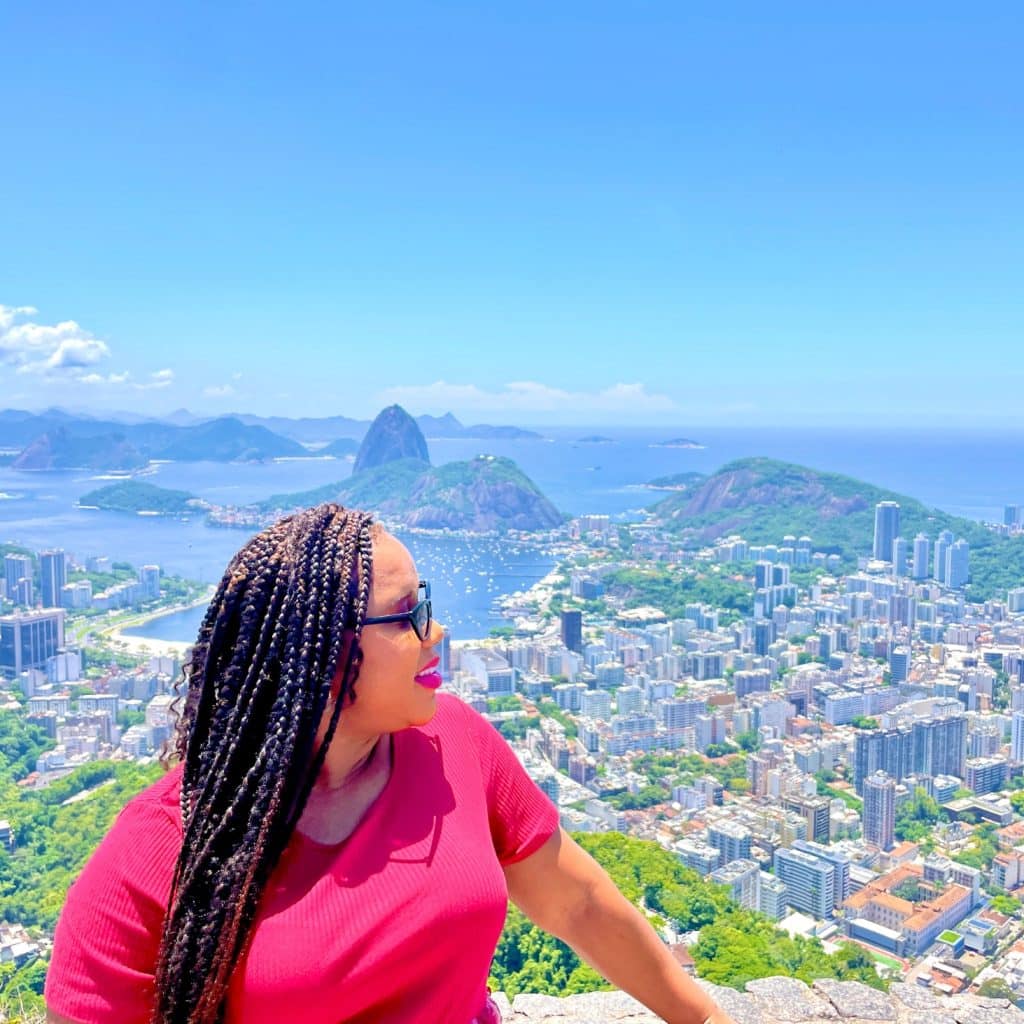
1. Florianópolis

You’ll quickly recogize as you go through the list of cities, the safest areas are all far from the borders–especially borders in the Amazonas State–and Florianópolis is about as far as you can get.
As the capital of southern Brazil’s Santa Catarina state, Florianópolis is well known for its beautiful beaches and is one of the safest places in Brazil. The city has a population of over 500,000, which is a bit smaller than some of the other cities in Brazil, but it still sees one of the lowest crime rates in the country, year after year.
This safety rating is a huge benefit for travelers since a large part of Florianópolis is on Santa Catarina Island, meaning the most popular places require driving or public transportation.
The safest neighborhoods in Florianópolis are on the east side. Santa Mônica and Corrego Grande are two of the safest neighborhoods within the city limits, but if you’re willing to stay on the outskirts of town, Lagoa is even safer and closer to the east side beaches, like Praia da Joaquina and Praia do Campeche.
Safest Hotels in Florianópolis
👉 Safest Mid-Range Hotel: Hotel Porto da Ilha (🌟 8.9/10)
👉 Safest Luxury Hotel: IL Campanario Villaggio Resort (🌟 8.5/10)
2. Curitiba

Curitiba is the capital of the Paraná region and tends to have lower crime rates than other similarly-sized Brazilian cities.
Like Florianópolis, this probably has something to do with being far from any borders, but it’s also because Curitiba has some of the best living standards in Brazil, with lots of green spaces, good urban planning, and access to healthcare.
It’s a massive city with about 1.7 million residents, so there are certainly some areas to avoid if you’re planning to stay here.
Generally speaking, the farther you are from the Downtown Metro, the better. Centro and Centro Cívico have high rates of pickpocketing during the day and armed mugging at night. But if you avoid going out after 9 PM and stay on the outskirts of town, you shouldn’t have anything to worry about.
Neighborhoods like Rebouças, Água Verde, Batel, and Alto da XV are very safe during the day.
Safest Hotels in Curitiba
👉 Safest Mid-Range Hotel: Bourbon Curitiba Hotel (🌟 8.5/10)
👉 Safest Luxury Hotel: Nomaa Hotel (🌟 9.5/10)
3. Belo Horizonte

Belo Horizonte is the capital of the Minas Gerais state in southeastern Brazil. Locals consider it among the safest cities in Brazil for tourists, with lower crime rates than other cities of the same size.
The city is most famous for its Art Deco-style architecture, Mineirão Stadium, and beautiful green space. It’s also known as the bar capital of Brazil!
The only places to avoid at night are Centro or Lagoinha. I would also avoid the small favela of Morro das Pedras (south of the city center).
Other than that, the whole city is pretty safe! Even at night, you can head to the Savassi District for a safe night on the town.
If you’re looking for specific recommendations, though, I’ve heard people mention Mangabeiras, Belvedere, and Pampulha as some of the best areas to stay.
Safest Hotels in Belo Horizonte
👉 Safest Mid-Range Hotel: Holiday Inn Belo Horizonte Savassi (🌟 8.5/10)
👉 Safest Luxury Hotel: Ouro Minas Palace Hotel (🌟 9.5/10)
4. Brasilia
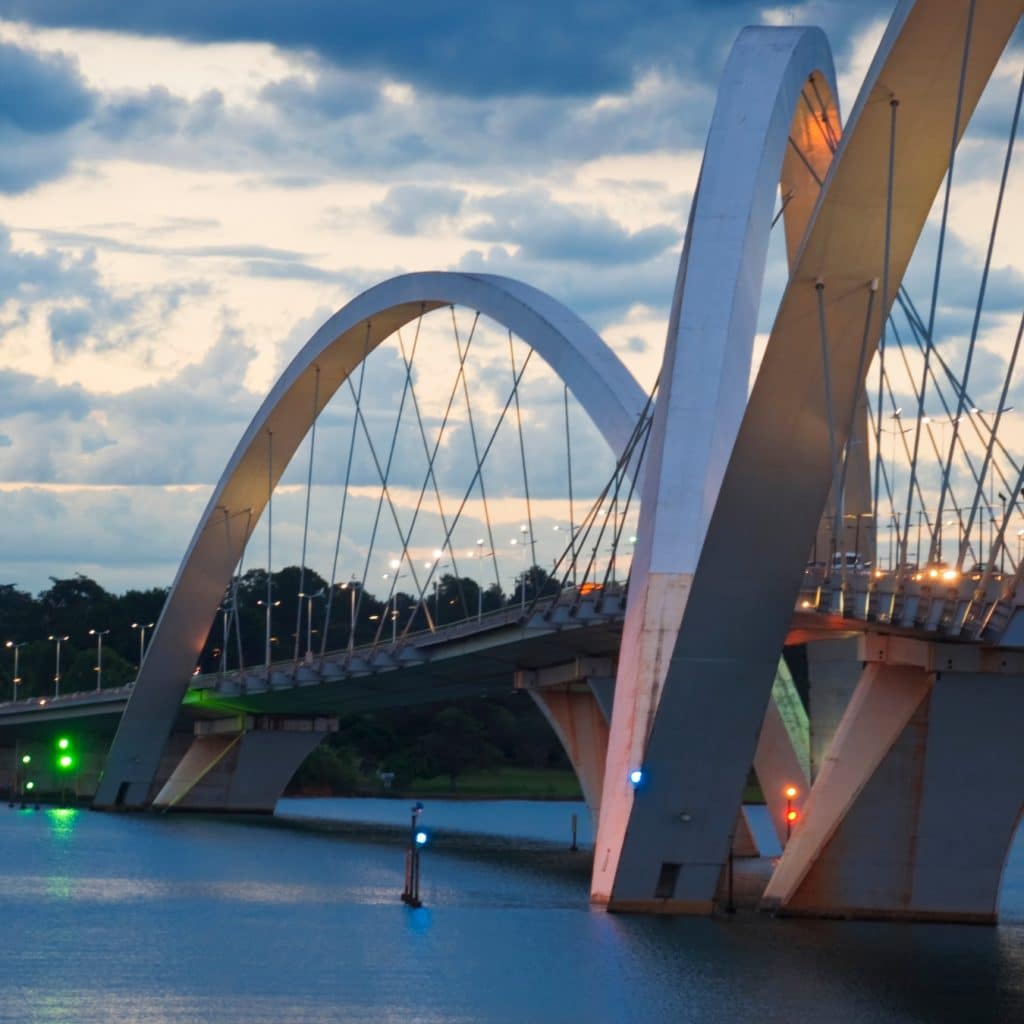
Brasilia is Brazil’s capital. The city has been designated a UNESCO World Heritage Site, yet it’s one of the most urban cities in the country.
Since the government offices are located there, there are occasionally protests and civil unrest throughout Brasilia, but this rarely affects travelers and expats.
The only real risk to foreigners throughout the city is pickpocketing and petty theft. Other than that, it’s quite safe to walk around and explore, as the crime rates here are lower when compared to the safety ratings of other cities of the same size in South America.
As with any city, there are some areas that tourists would want to avoid. These neighborhoods are mostly found on the outskirts of Brasilia and are referred to as satellite cities (a.k.a. favelas). Some of these include Ceilandia, Santa Maria, Sao Sebastiao, and Paranoa.
Safest Hotels in Brasilia
👉 Safest Mid-Range Hotel: Saint Mortiz Hplus Express (🌟 8.8/10)
👉 Safest Luxury Hotel: Royal Tulip Brasília Alvorada(🌟 9.5/10)
5. São Paulo

São Paulo is Brazil’s largest and most populous city in South America. It is full of incredible places to visit for both tourists and locals, and it’s one of the safest places to travel in Brazil.
During my first visit to São Paulo, I explored the city on my own on foot and by metro. I felt completely comfortable doing so during the day. But since traveling solo, I made sure to head back to my hotel in São Paulo when the sun started to set.
As with any large city, there are safe areas and unsafe areas of São Paulo.
Most areas in the central part of the city are safe for travelers to explore, especially during daylight hours. Some of the safest neighborhoods to stay in São Paulo are Bela Vista, Jardins, Consolação, and Itaim Bibi.
Safest Hotels in São Paulo
👉 Safest Mid-Range Hotel: Radisson São Paulo Paulista (🌟 8.5/10)
👉 Safest Luxury Hotel: Hotel Unique (🌟 9.5/10)
6. Joinville

Joinville is a smaller city in Southern Brazil between Curitiba and Florianópolis. Its population is just under 600,000, and it’s an incredibly safe city in the safest State of Brazil (Santa Catarina).
It’s a fascinating place to visit because of its diversity. Joinville has a massive population of German-Brazilians, as well as heavy influence from the French and the Indigenous culture of the Guaraní people.
In general, the south/west sides of the city are more dangerous (Paranaguamirim, Vila Nova, and Fátima). The north/east side of the city is more affluent and seen as a safer area to stay while traveling in Brazil.
But as long as you stay aware of your surroundings, you won’t likely run into trouble anywhere in Joinville.
Safest Hotels in Joinville
👉 Safest Mid-Range Hotel: Bourbon Joinville Hotel (🌟 8.8/10)
👉 Safest Luxury Hotel: Hotel Tannenhof (🌟 8.9/10)
7. Palmas

If you were waiting for me to mention a city OUTSIDE of southern Brazil, here it is!
It might not be the first place you think of when planning a trip to Brazil, but Palmas is considered to be one of the safest cities in the country. It’s the capital of the Tocantins state in central Brazil, and it’s most famous for being a base for travelers to see the forests and natural pools of Jalapão State Park!
However, the smaller city is also wonderful to visit if you want to feel safe immersing yourself in the local Brazilian culture.
Although you will still need to exercise a basic level of caution, it has significantly lower crime rates and a more familial atmosphere, making it safer than any of the larger cities on this list.
Safest Hotels in Palmas
👉 Safest Mid-Range Hotel: Ibis Styles Palmas (🌟 8.1/10)
👉 Safest Luxury Hotel: Hotel Girassol Plaza 🌟 8.5/10)
8. Natal
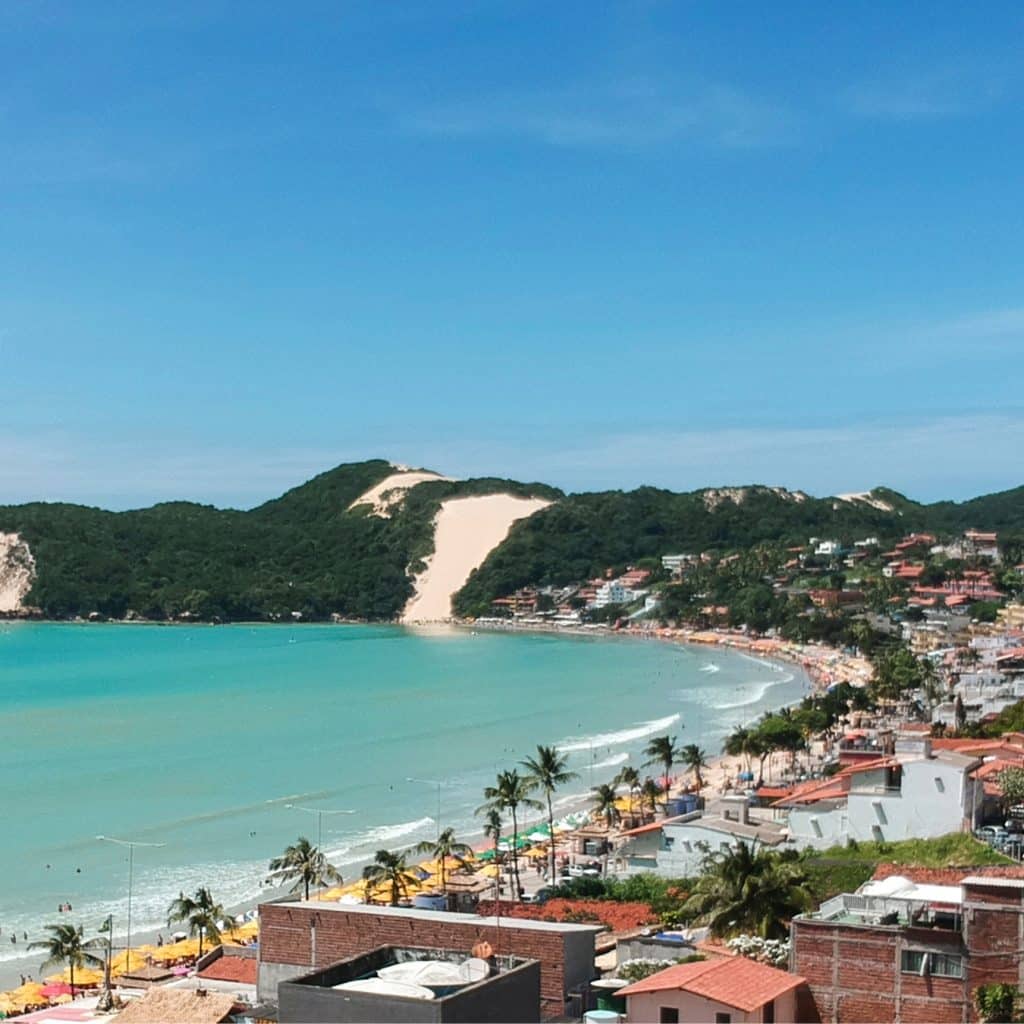
Natal is located in the state of Rio Grande do Norte in Northeast Brazil.
It’s a larger city with a population of around 800,000 people, and it has a pretty bad reputation.
At one point, places called it the most dangerous city in Brazil! A lot of that is because the homicide rates and robberies outside of the main tourist areas were so high. Many favelas throughout the city also skew these statistics.
Yet, I’ve heard so many expats living here say they rarely feel unsafe in their neighborhood.
Almost all of these individuals live in Ponta Negra, Tirol, or Capim Macio.
Stick to these neighborhoods (all along the coast) and don’t venture far from the touristy areas. If you do that, you’ll have a great chance of having a very safe experience in Natal!
Safest Hotels in Natal
👉 Safest Mid-Range Hotel: Golden Tulip Natal Ponta Negra (🌟 9.2/10)
👉 Safest Luxury Hotel: Serhs Natal Grand Hotel Resort (🌟 9.1/10)
9. Porto Alegre

Porto Alegre is the capital of Rio Grande do Sul in southern Brazil, with about 4 million residents.
Most people will tell you that Porto Alegre is NOT a safe city, and to be fair, there are stats to back that up. Most of Zona Norte is very dangerous, including neighborhoods like Indepencia, Floresta, Farrapos, and the towns surrounding the Porto Alegre airport.
Unfortunately, the devastating floods of 2024 only worsened the city’s reputation for being dangerous.
But there are actually quite a few safer areas throughout the city that people don’t talk about. For instance;
- Cidade Baixa is a trendy area with lots of nightlife and university students
- Moinhos de Vento is the most upscale neighborhood with extremely secure hotels
- Centro Histórico is a great place to be during the day (although it can get a little dicey at night).
As long as you take precautions to wear a money belt while out in the city, travel with a group, and avoid staying out past dark, you’ll have a great time seeing the city’s beautiful cathedrals and historic museums and trying all the famous churrascarias (local barbecue steakhouses).
Safest Hotels in Porto Alegre
👉 Safest Mid-Range Hotel: Intercity Porto Alegre Cidade Baixa (🌟 8.2/10)
👉 Safest Luxury Hotel: Hotel Deville Prime Porto Alegre (🌟 9.5/10)
10. Rio de Janeiro

Rio de Janeiro is Brazil’s most popular travel destination by a landslide because of the impressive Christ the Redeemer statue, Sugar Loaf Mountain, and its beautiful beaches like Copacabana and Ipanema. Rio is also known around the world for Carnival, a vibrant and exquisite festival that takes place every February.
There are also plenty of fun and exciting day trips to take from Rio de Janeiro, so it’s a great home base for your trip to Brazil.
In recent years, Rio de Janeiro has gained a reputation for being unsafe. However, Rio is a large city with plenty of safe neighborhoods for tourists. These neighborhoods are mostly in the southern zone of the city.
Some of Rio’s safest areas include Ipanema, Leblon, and Copacabana. My family personally stayed in Barra da Tijuca, an upscale neighborhood, and felt very safe taking evening strolls to dinner and back to our hotel in Rio.
While these are known as safer areas of Rio, it is still best to follow common safety practices and avoid walking on the beaches alone at night.
There are places that tourists should avoid in Rio de Janeiro, including the Favelas (a.k.a. shanty towns/satellite cities). These areas typically have very high crime rates and gang violence, so it’s best to avoid them.
Also, spiked drinks can become a big problem if you’re visiting for Carnival, so buy your own drinks and keep a close eye on them.
Safest Hotels in Rio De Janeiro
👉 Safest Mid-Range Hotel: Windsor California Copacabana (🌟 9.0/10)
👉 Safest Luxury Hotel: Belmond Copacabana Palace (🌟 9.5/10)
What is Brazil’s Safety Rating?
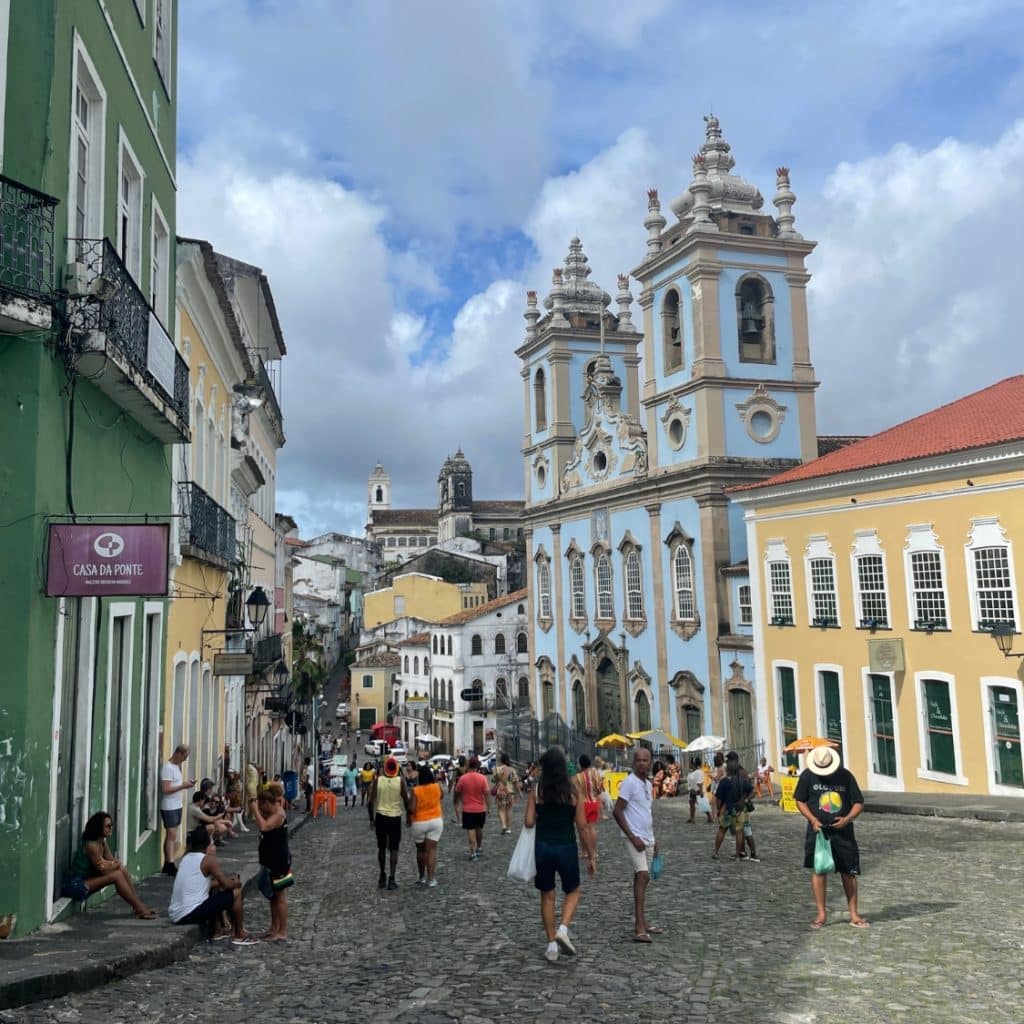
The US Department of State currently lists Brazil at a Level 2 Exercise Increased Caution.
A Level 2 ranking is common in many places around the world, including many countries in Europe and other popular tourist destinations, so it should not prevent you from traveling to Brazil, assuming you are ready to take some basic safety precautions.
A few select places in Brazil are listed as Level 4 Do Not Travel. All of these places are easy to avoid. They include certain Favelas (a.k.a. shanty towns, satellite cities, or comunidades), some areas in the Amazon, and small towns near Brazil’s borders with Venezuela and Colombia.
Does this mean that you shouldn’t travel to Brazil? Is the whole country unsafe?
Of course not! I would argue that it is safe to explore Brazil, whether you’re traveling alone or with your family.
There are many cities across Brazil that are considered safe to travel to, as long as you research the best neighborhoods to stay in, exercise caution at all times, and don’t stay out after dark.
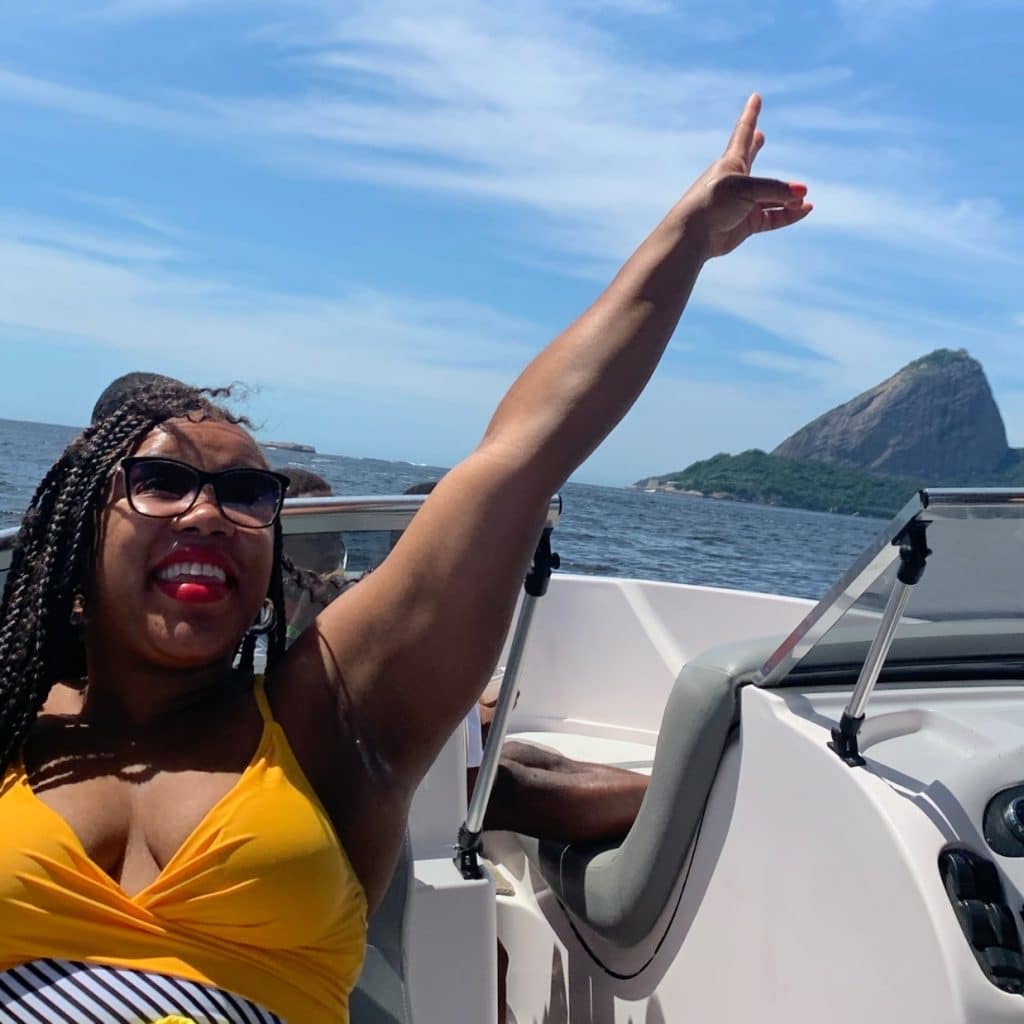
My Top Safety Tips for Traveling in Brazil
Like all cities around the world, Brazilian cities face issues with crime rates.
But all it takes is following a few extra safety precautions to have an amazing and safe trip to Brazil. Here are a few of the most important tips I can give you to stay safe while traveling to Brazil:
- Be aware of your surroundings
- Avoid walking on the beaches after dark
- Don’t leave your cell phone and valuables unattended when taking a dip in the water – instead, use a waterproof bag or fanny pack and take them with you.
- Leave unnecessary valuables at home.
- Don’t give the appearance of wealth (wearing expensive jewelry, etc.)
- Avoid walking after dark or around unknown areas, especially alone
- Always walk along main streets, and avoid alleyways and empty side streets
- Let a friend or family member know your travel plans, especially if you are traveling solo
- Hire a local guide to show you around or take guided tours
- Get travel insurance before your trip
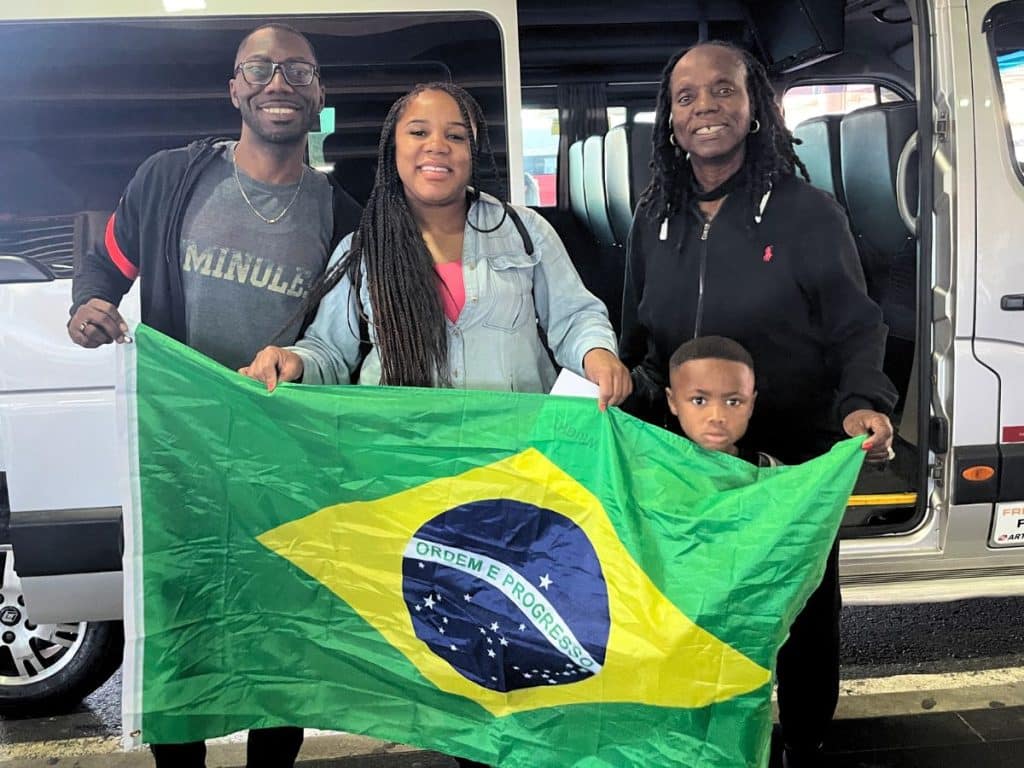
If you’re a solo female traveler, take the same precautions that you would in any country, such as;
- Inform a friend or family member of your travel plans
- Check in with someone regularly
- Take a taxi rather than walking home at night
- Find other travelers to join you when you participate in the nightlife.
Also, taking an Uber is a great way to avoid taxi scams, as you will pay for the ride upfront through the app. Uber is considered to be a safe mode of transportation in Brazilian cities.
Is Brazil Safe for Families?
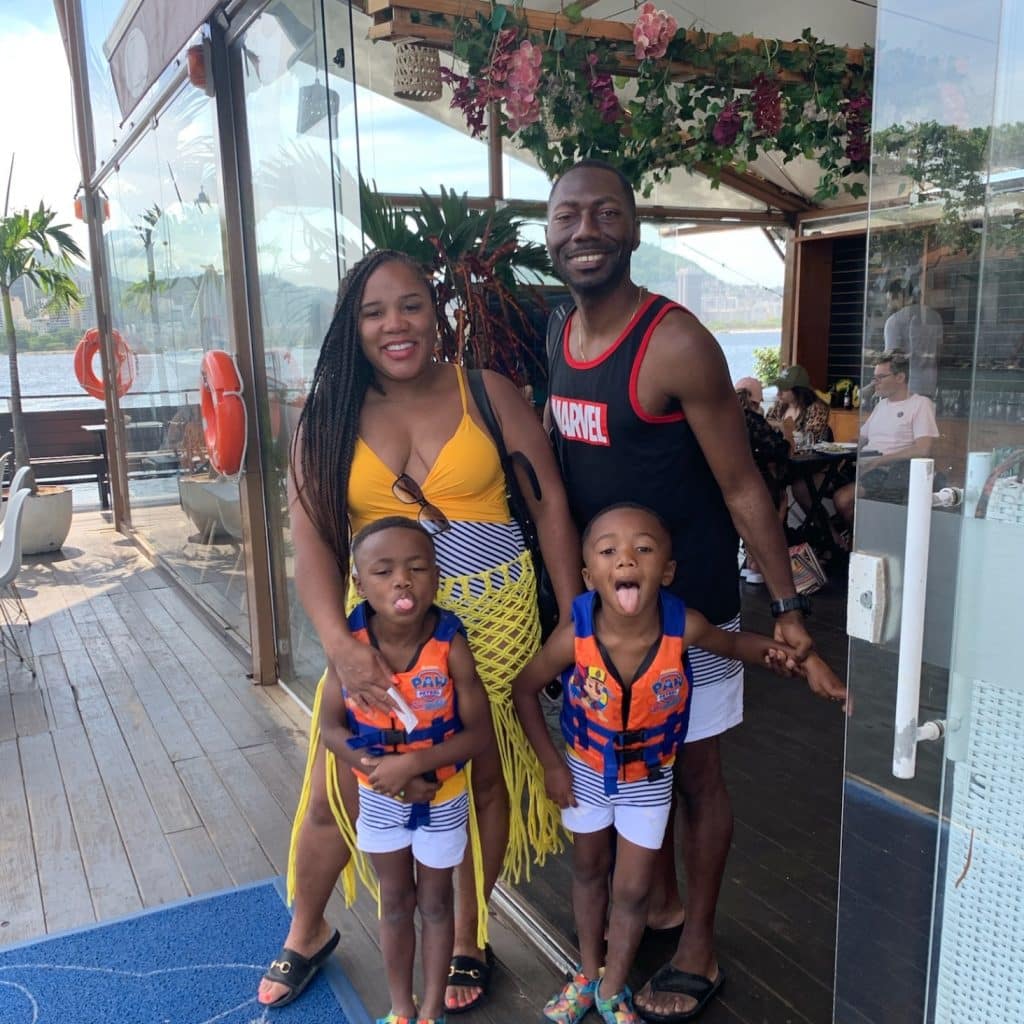
Brazil is a safe destination for families.
Family is essential to Brazilian culture, so Brazilians welcome families and children. In Brazil, it’s common for children to come with their parents to restaurants and beaches and take part in other family activities.
Many of the restaurants we frequented with our twin four-year-olds had either a special section for kids to play or free meals for kids under a certain age.
Traveling with kids to Brazil will take some extra planning, as with any destination. You generally follow the same safety precautions as always, like staying in a safe part of town and not wandering around late at night.
When traveling with children, another safety aspect you always have to consider is transportation. For example, if you have small children and plan on riding in a car at some point during your trip (almost certain in Brazil), it may be necessary to bring a car seat.
We brought our WAYB Pico car seats to Brazil and were very glad we did.
Since they are foldable and only 8 pounds each, it was extremely easy to transport them. As a bonus, the carrying case was spacious enough for us to bring home extra goodies that couldn’t fit in our suitcases.
Also, don’t forget to bring kids’ sunscreen for all the family time you’ll enjoy on Brazil’s sunny beaches.
FAQ: Safest Cities in Brazil
Here are a few common concerns and questions we get all the time about staying safe in Brazil.
Florianópolis is Brazil’s safest city as it has one of the lowest crime rates amongst the other major cities in Brazil. In fact, the city is considered to be one of the safest cities in South America.
The southeastern states of São Paulo, Santa Catarina, and Paraná are some of the safest parts of Brazil. Typically, the farther you are from the State of Amazonas and the international borders, the safer you will be.
There are many safe places to live in Brazil, including São Paulo (Brazil’s largest city), Florianópolis, Brasilia, and Curitiba!
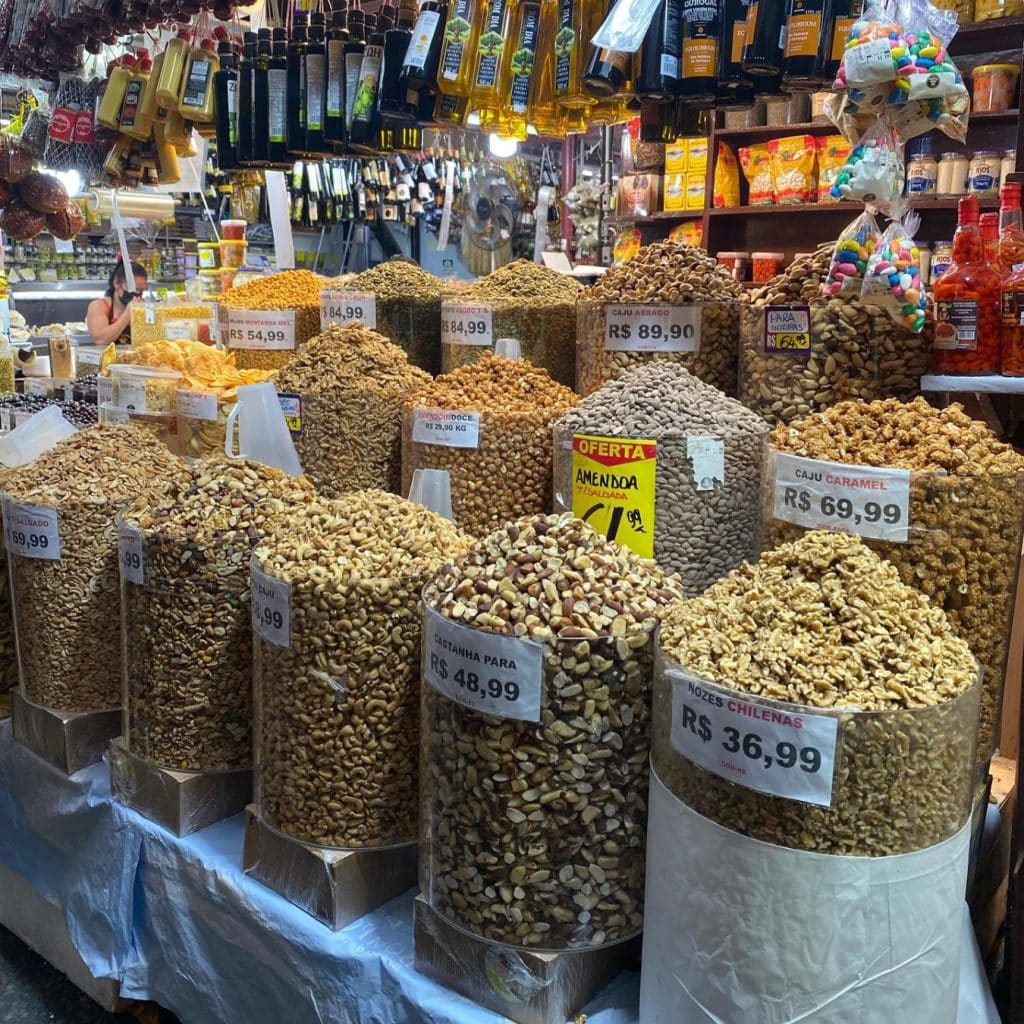
Final Thoughts
If you use common sense and follow general safety tips, you should feel confident about your personal safety if you travel to any of these cities in Brazil.
Of course, every one of them has 1-2 areas I would avoid, so please stay at a hotel in one of the recommended neighborhoods, especially in Rio de Janeiro, Natal, and São Paulo.
São Paulo is probably the most important place to find a safe and convenient neighborhood, simply because of its sheer size.
If you want some extra help finding a safe place to stay there, we put together a list of the best (and safest) places to stay in São Paulo here!




